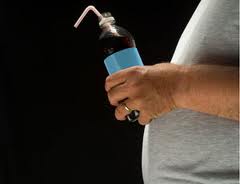Study: Fructose Can Lead to Overeating
Delia Quigley January 8, 2013
In the quest to discover the cause for obesity in America, medical scientists are turning to magnetic resonance imaging (MRI) to better understand how the brain reacts to certain sugars.
In the quest to discover the cause for obesity in America, medical scientists are turning to magnetic resonance imaging (MRI) to better understand how the brain reacts to certain sugars.
In a recent study published in the January issue of the Journal of the American Medical Association (JAMA), a team of scientists at the Yale University School of Medicine enlisted 20 adults who were each given 75g of pure glucose and another time 75g of fructose to drink. Their brains were scanned before and after consuming the drinks, leading to some interesting observations.The glucose caused a reduced blood flow to the brain’s hypothalamus signaling that the body was satisfied and full; while the fructose caused an increase in blood flow signaling that it was not sated and wanted more.
When you eat complex carbohydrates in the form of fiber rich vegetables, whole grains, beans and lentils your body converts this slow burning food to glucose, a simple sugar that your cells use as a primary source of energy. Glucose stimulates your pancreas to produce the hormone insulin, which in turn signals your brain to stop eating when you’ve had enough.
With fructose it is a different story, especially in the form of high fructose corn syrup (HFCS), sucrose and refined white sugar, the focus of the study. Fructose consumption causes your brain to resist leptin, the protein you need to regulate how much you are eating and very weakly stimulates the secretion of insulin. Because of the high amounts of fructose in the form of HFCS used in soda pop and processed cookies, cakes, breads and candies your brain won’t receive the signal that enough has been eaten, so you keep on eating without feeling full or satisfied.
It is a common complaint for overweight individuals to feel they are out of control and cannot stop eating, when in fact it is the very makeup of the foods they are consuming that causes the brain to continue to signal hunger long after the required calories have been consumed. In an accompanying editorial to the Yale study, Dr. Jonathan Purnell and Damien Fair of Oregon Health and Science University in Portland wrote that the findings, “support the conceptual framework that when the human brain is exposed to fructose, neurobiological pathways involved in appetite regulation are modulated, thereby promoting increased food intake.”
Dr. Robert Sherwin of the Yale University study concludes that,”These findings suggest that ingestion of glucose, but not fructose, initiates a coordinated response between the homeostatic-striatal network that regulates feeding behavior.”
The full study, “Effects of Fructose vs Glucose on Regional Cerebral Blood Flow in Brain Regions Involved With Appetite and Reward Pathways,” can be found in the January, 2013 edition of the Journal of the American Medical Association.
source: Care2.com



Comments
Post a Comment